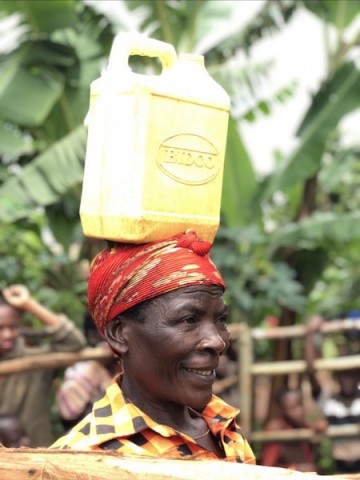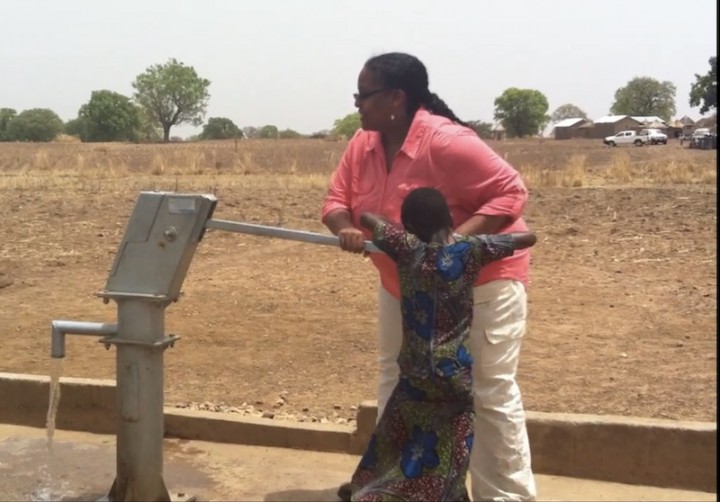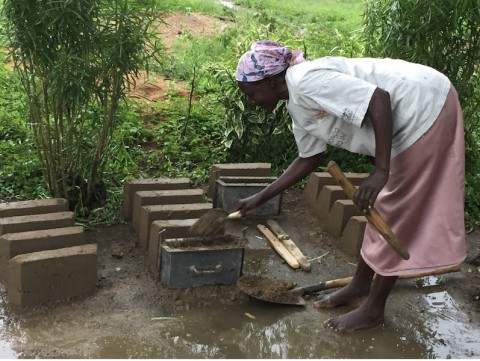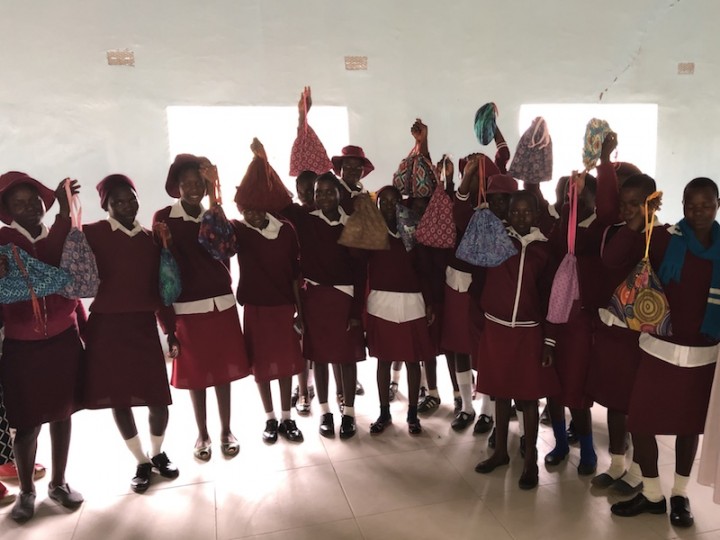 Training Next Generation Leaders to Help Address Global Challenges
Training Next Generation Leaders to Help Address Global Challenges

Program Overview:
In partnerships with NGOs, the Columbia Water Center, Columbia World Projects, and leveraging the footprint of the Columbia Global Centers, Columbia University is excited to offer the Global Leadership in Action Field Experience (GLiA) for Summer 2022.
The GLiA is excited to partner with World Vision for Summer 2022. Through these partnerships, scholars will have a hands-on opportunity to work side-by-side in underserved communities in low and middle-income countries in Latin America, the MENA region, Southeast Asia and Sub-Saharan Africa with NGO/community partners focused on implementing global health, international development, and humanitarian initiatives at the nexus of improving WASH--water, sanitation, and hygiene—education and livelihoods to address the United Nations Sustainable Development Goals (SDGs).
Students who wish to apply need to be Laidlaw Scholars. The priority deadline to apply is Wednesday, December 15th 2021.
Please contact GlobalAction@columbia.edu with any questions.
Application Information
The G-LiA application will request basic information about scholars. It will also ask for the following information.
Statement of Purpose
One-page statement about candidate’s interest in the field experience and sustainable development goals enabled by WASH.Language Proficiency
Location of Interest
Scholars are placed based on the need of the organization, but the review committee will take interests into consideration, these are not guaranteed.References (Optional)
References can be anyone knowledgeable of your ability to work on projects related to the improvement of health outcomes and pursue a career contributing to international development. Examples include an employer, faculty member, adviser, service learning mentor, etc. Note: We are not looking for actual reference letters, but a reference could be contacted if listed.Unofficial Transcript (Optional, encouraged if there is relevant coursework)
Resume
Students who wish to apply need to be Laidlaw Scholars. The priority deadline to apply is Wednesday, December 15th 2021. Please contact GlobalAction@columbia.edu with any questions.
Program Components
Field Experience: 

For Summer 2022, it is anticipated that students will have the opportunity to complete G-LiA field experiences—in groups of 2 to 8 students-- in the following countries in Africa, Asia, Latin America, and the MENA region (based a safety and security review as of 15 October 2021): Bolivia, Ghana, India, Jordan, Kenya, Lesotho, Malawi, Senegal, Sierra Leone, Rwanda, and Zambia. Current list is subject to change based on local conditions and community needs. Additional locations may be added with full security and safety review.
Please watch these videos from World Vision.
GLiA Scholars will have the opportunity to focus on a variety of WASH, global health and development areas, including:
- Water, sanitation and hygiene (WASH)
- Maternal and child health
- Health education
- Social marketing
- Community engagement
- Monitoring and evaluation
- Economic development
- Policy
- Food Security and agriculture
- Engineering
- Health promotion
- Community-based participatory research
- Health and the environment
- Menstrual hygiene management
- Business development
- Entrepreneurship
- Health systems
- Climate change
- Program evaluation
- Behavior change
- Gender Mainstreaming
- Noncommunicable diseases
- Infectious disease
- Reproductive health
- Disabilities and inclusion
- Privatization
Topic areas of interest also include the ability to study topics as related to the Sustainable Development Goals Enabled by WASH.
Activities:
In addition, all G-LiA field experience will be supplemented by the following activities (facilitated by mentors/NGO partners):

- Country-level and site-specific lectures on community development theory of change models and approaches to addressing the 2030 sustainable development goals in the local community;
- Area program visits to interact with communities and stakeholders.
- Practical engagement and reflection with the community leaders and members in the area programs on issues of development.
- Immersion in communities and area programs (e.g. living and working in the communities); in addition, students will also have an optional opportunity to live with a host family--for some portion of the experience-- to experience the daily life of a family in the community.
- Interaction and reflection with the area program staff and participation in actual community development work.
- Visits and interaction with government officials and stakeholders in the district and regions where they are observing programs.
Program Finances
The Columbia G-LiA program will cover the following associated costs for any Laidlaw Scholar who participate in the program:
- Field experience placement and mentor pairing
- Housing for six weeks
- Two meals/day (offered via the housing provider)
- Local transportation (including local flights, depending on location)
- All program related trips/excursions
- Comprehensive health, safety, and security review of each program site
- Emergency coverage from I-SOS, along with other support and resources
Laidlaw Scholars should check with their home institution to understand financial support for a round-trip flight to the location.
Pre-Departure Orientation:
Using synchronous and asynchronous virtual learning, a comprehensive G-LiA pre-departure orientation program will be implemented by Columbia Global Engagement, including online modules that will provide a review of site-specific travel arrangements and logistics, the arrival process, cross-cultural communication, cultural adjustment and cultural humility, and ethical practice as well as facilitated modules that will allow scholars to acquire basic knowledge and skills--and have tools in their “toolbox” to allow them to begin to analyze the development challenges they observe when they arrive in their country placements--related to:
- applying theory of change models to address development challenges in the context of the SDGs;
- gender equality and social inclusion (GESI);
- monitoring, evaluation, and learning;
- savings-led and village level microfinance;
- designing for behavior change;
- human-centered design.
Additionally, as part of the pre-departure orientation program students will receive site specific information about travel medicine (including recommended and required vaccines, medications, etc.) and visa requirements. Scholars will also be required to enroll in and will be tracked by Columbia UTRC/ISOS system (for safety and risks management) and will be required to participate in an onsite security briefing on arrival in their country of placement.
Expected Responsibility of Students
During the Columbia G-LiA experience, all students will be required to maintain a weekly learning log, which will also be used to frame discussions with their field mentor (and for evaluation). At the end of the G-LiA experience-- before leaving the country of placement-- each student would give a presentation on the lessons learned and share with the communities, field staff/NGO mentor and leadership, and/or government officials, and this presentation can also be used as the preliminary draft for the required G-LiA Showcase (a virtual conference that will be held at the end of the summer, showcasing the work of the Scholars who completed Columbia G-LiA experiences around the world). The objective of this exercise is to further build the leadership skills of the students, to allow students to demonstrate the competencies and skills gained from their experience in the field, as well as help influence practice and policy of both the NGO partner and the governments.
Global Learning Outcomes
The Columbia field-based G-LiA experiences will promote the following global competencies and leadership skills for participants:

- Global Self-awareness;
- Perspective taking;
- Critical reflection;
- Constructive dialogue;
- Understanding cultural diversity;
- Personal and social responsibility;
- Understanding global systems;
- Applying knowledge to contemporary global contexts;
- Ethical engagement;
- Social justice;
- Gender equality and social inclusion; and
- Interdisciplinary collaboration.
Additional Details
Safety and Security
The Center for Undergraduate Global Engagement oversees Columbia’s Undergraduate International Travel Policy and Processes. UGE reviews close to 1,000 applications for travel each year for a range of activities located around the world. Columbia partners with International-SOS to perform security reviews and support students while traveling on Columbia-related travel.